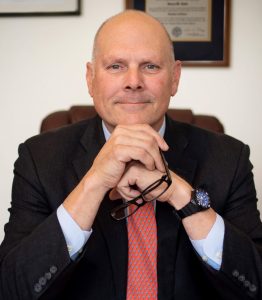The Election is Over: What’s Next for Retirees?
By Steve Gaito
McDowell County
As the dust settles from the election, I think we can all agree on one thing: it’s refreshing to turn on the TV and see ads for car dealerships and pain relief products instead of endless political commercials. For many Americans, these elections — every two years, like clockwork — are both exhausting and polarizing. Today, we know that Donald J. Trump will serve as President for the next four years. And, in no time, we’ll begin the process again, pouring billions into choosing our next leaders. But what does all of this mean for retirees?
It’s no secret that what happens in Washington impacts everyone, especially retirees. With narrow majorities in both the House and Senate, passing significant legislation could be a tough challenge, which may slow down or complicate changes to retirement policies. I recently attended a webinar on what we might expect from the Trump administration in terms of retirement and tax planning. An expert named Becky laid out a three-phase transition period that could offer some insights for retirees.
- Now through January: This is the “honeymoon” period, where staff are assembled, and priorities take shape.
- January through June: Policies will be established and prioritized, with decisions coming into sharper focus.
- June through December: The administration will push to implement as many policies as possible before the midterm elections take over the agenda. After all, politicians always have their eyes on reelection.
Given the uncertainty in Washington, retirees must have a solid plan that insulates their retirement from the back-and-forth winds of political change. While elections come and go, each shift in leadership has the potential to affect retirement income, so being prepared is critical.
One area to look closely at is Social Security. There was talk on the campaign trail of exempting Social Security benefits from income tax. If this happens, it could offer significant relief for retirees. If nothing changes, however, the Social Security trust fund may be depleted by 2033, which could impact many baby boomers. While I don’t believe this will happen, it’s something to monitor.
Perhaps the biggest challenge retirees face is national debt. Currently, the debt stands at a staggering $36 trillion, and neither candidate addressed it meaningfully. Our fixed expenses now match our revenue, and every dollar of discretionary spending is deficit-funded. This will eventually require action — maybe not in the next four years, but inevitably. And that’s why protecting your retirement assets from heavy taxation should be a top priority. As the saying goes, “Why do bank robbers rob banks? Because that’s where the money is.” Congress knows your retirement accounts are “where the money is,” and that makes them an easy target.
So, what’s the plan for retirees moving forward? Here’s my approach:
- Take Advantage of Current Tax Rates: With low tax brackets currently in place, now is a prime time to address your qualified assets, such as IRAs and 401(k)s, and move toward tax-free options like Roth IRAs. This isn’t about party lines — it’s about managing a debt crisis that neither side has tackled effectively. With mandatory spending increasing, retirees face added financial stress, making tax planning even more vital.
- Consider Strategic Conversions in 2025: Between now and 2025, it’s an ideal window to convert assets to tax-free vehicles like Roth IRAs. This can help minimize taxes on assets passed to heirs, making your legacy more efficient. As a close friend of mine often says, “When you pass, your assets can go to family, charity, or the government. Two out of three are great options, but without planning, the government may take more than its fair share.”
If you have questions about how to minimize taxes in retirement, please feel free to reach out to my office. I’ll keep you updated as more information becomes available. Now’s the time to make the most of today’s favorable tax environment and ensure a stable retirement.
Thank you,
Steve
_________________________________________________
Steve is the owner of Faith-Based Health Care and Retirement Resource Management. He is a National Speaker on the topic of Social Security optimization, quoted in national publications like Money Magazine, US News and World Reports, and Fox Business. Steve loves to educate and teach on financial topics like taxation of retirement accounts, long term care, healthcare, and efficient savings plans for small businesses. He has provided financial planning for missionaries through the International Mission Board. You can find Steve at 68 South Main St. in Marion, NC by calling 828-559-0299, email steve@faithbasedhc.com or visit his website at www.faithbasedhc.com.
Read more, good Christian news from Steve Gaito HERE.
_________________________________________________






